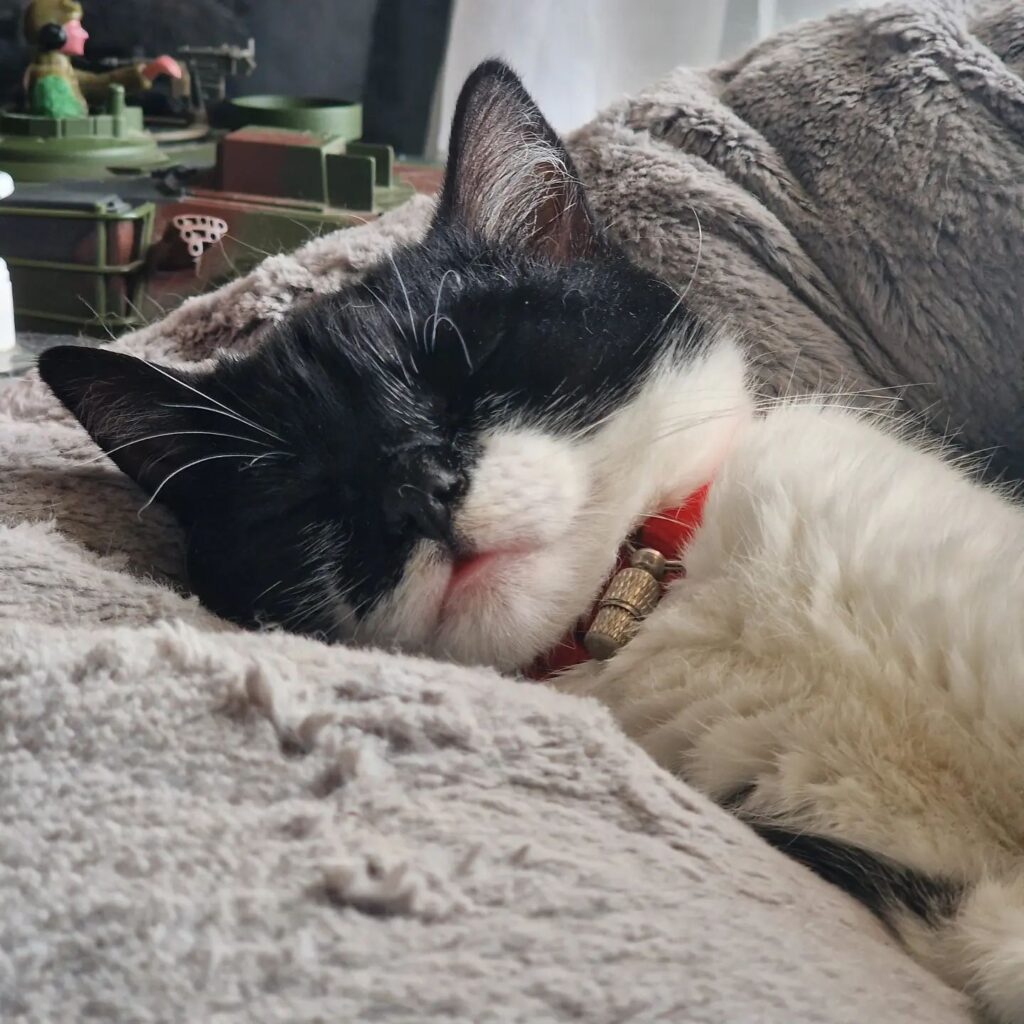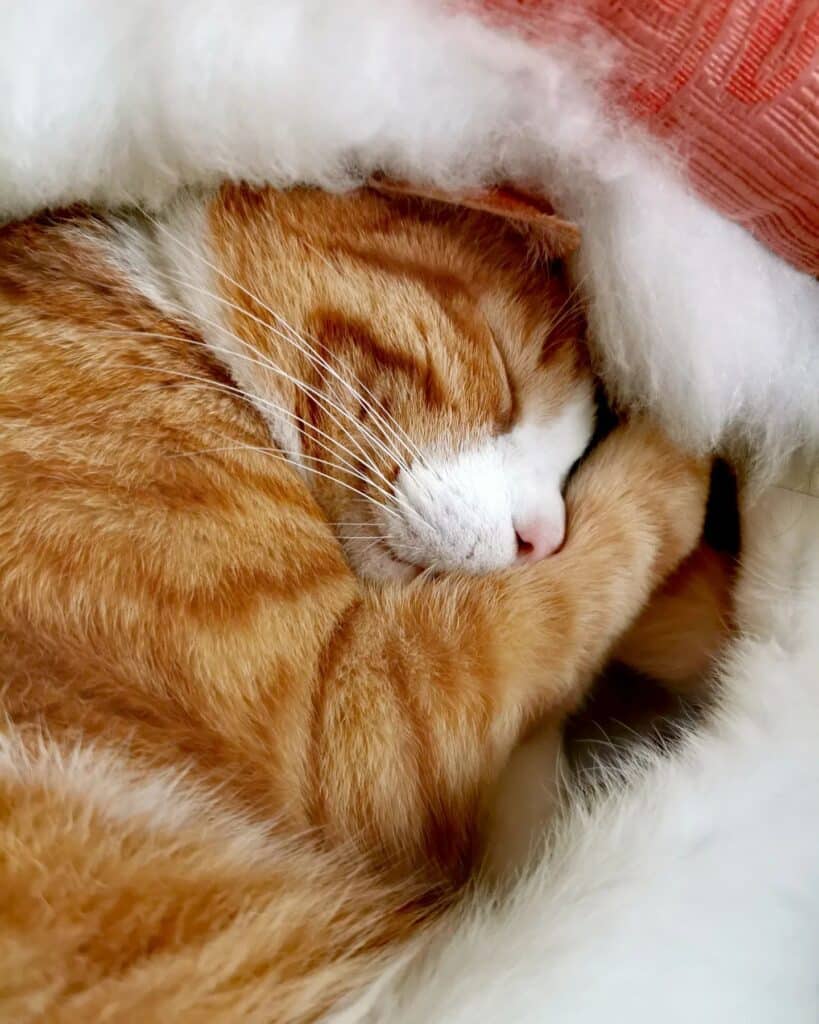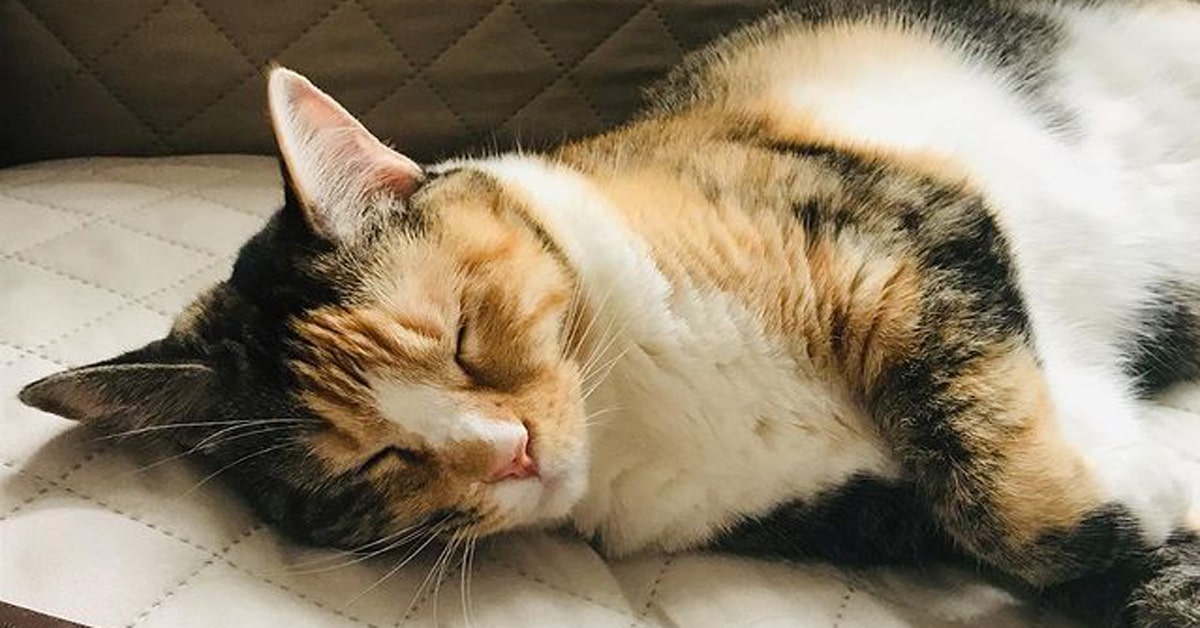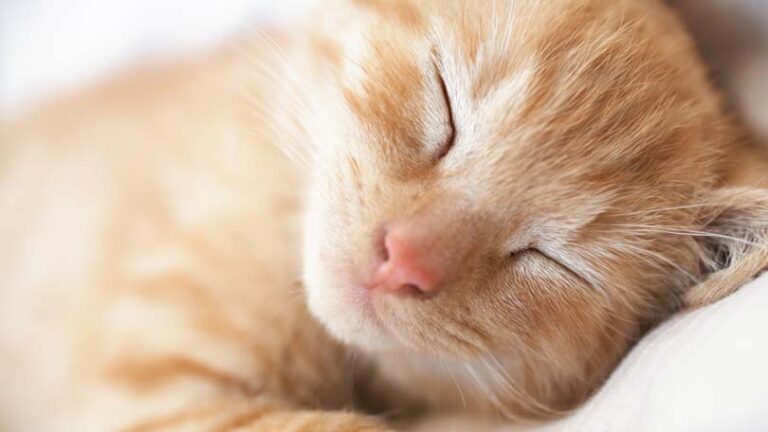Can Cats Have Nightmares? Unraveling Dream Patterns in the Feline World
As legendary nappers, our beloved felines appear to spend the majority of their lives in dreamland. So, it’s only reasonable for us to wonder, can cats have nightmares?
You might be surprised to find that cats sleep twice as much as people do and, on average, spend about 15 hours a day dozing off. However, this number can easily reach 24 hours for exceptionally exhausted felines. Cats spend a lot of time sleeping, so it makes sense that they dream and experience nightmares just like humans.
But is that true? Can cats have nightmares? Keep reading the article and unravel the dream patterns of the feline world!

Can Cats Have Nightmares?
Have you ever found yourself wondering, can cats have nightmares? Considering humans have been trying to find out whether can cats have nightmares since the dawn of time, you should be aware that you are not the only person considering this intriguing question. It’s a query that the majority of feline friends have asked while observing the moments when their furry companion expresses disturbance during sleep.
It is quite common for your feline friend’s dreams to be connected to a negative occurrence that happened during the day, just like it is with humans. It’s not unusual for your cat to have a nightmare since, as we discovered, their dreams are based on real-world events.
According to common belief regarding this concern, can cats have nightmares? Felines who awaken scared and alert, with their eyes wide open and ears flattened, have presumably just experienced a horrible dream. Additionally, they may be having a nightmare if they behave strangely while they are sleeping, such as breathing quickly or twitching.
Since felines are unable to inform us, it is generally difficult to discern if their dreams were positive or negative. However, their actions speak volumes, and you don’t need to communicate with cats to distinguish between satisfying and disturbing dreams.
There are a few other factors to take into account, even though the answer to the question “Can cats have nightmares?” seems simple. You might not want to wake up your furry companion if you catch it sassing and acting abnormally when it’s dreaming. There’s a danger of getting bitten or scratched. Similar to humans, cats won’t be aware of what is happening for the first few seconds after waking up, and their first reaction will almost certainly be to defend.
Why Do Cats Have Nightmares?
We are delighted to satisfy your curiosity about whether can cats have nightmares. However, it might also be beneficial to know why cats encounter this terrifying experience.
We are aware of the causes of our dreams, which are frequently a frightful horror film we have watched, a tense personal experience, or something that has happened in the world generally. Sometimes, everything can become entangled in a series of terrible yet irrational occurrences that haven’t ever happened and possibly never will.
The fact that cats’ nightmares are made out of past traumas and actual events that have injured them in some manner sets them apart from humans. They won’t have nightmares about a house filled with poisonous spiders. Instead, they’ll recall a dog that pursued them down the street a few weeks ago.
After sophisticatedly addressing the inquiry of whether can cats have nightmares, to help you comprehend why felines get this disturbing experience, we’ve identified 5 potential causes below.

1. Age
Cats’ age is one of the causes of their nightmares. Rapid eye movement (REM) sleep is even claimed to occur more frequently in kittens. Therefore, it may be inferred that kittens suffer more nightmares.
As we have previously stated, cats’ dreams are typically brought on by traumatic events that occurred at some point throughout their lives. How can cats have nightmares in their infancy given their youth and lack of experience? This is a question that some people may ask.
In any case, it’s crucial to keep in mind that it doesn’t matter how many negative experiences people have; what matters is the quality, or in this example, the unfavorability, of the prior occurrence, not its quantity.
For instance, early separation from their mother may cause kittens to experience nightmares. Therefore, if you have a kitten and have observed how restless she sleeps, you shouldn’t rule out the potential for nightmares. Despite being young, she is nonetheless susceptible to having horrible dreams.
2. Sense of Abandonment
If you’re still concerned about how can cats have nightmares, you should be aware that they might fear being abandoned as a possible explanation. Although cats may have the notorious reputation of being the least sociable of all animals, this is untrue; despite their chilly and uninterested demeanor, cats yearn for human attention and our presence in their lives.
Cats can experience nightmares regarding situations in their past where they were abandoned for an extended time, yet they may never dream of an imagined abandonment scenario. If they had an awful endeavor in the past, they will undoubtedly dream about it, even if their present owner spends a lot of time with them. It’s hardly surprising that one of the cats’ greatest nightmares is being separated from their owners, as the majority of cats are prone to separation anxiety.
3. Conflict with Other Pets
The interaction that cats experience with other animals is another potential cause of their nightmares. In houses with multiple felines, there is always one cat that is more dominant than the others, and this cat may bully other cats, giving some of them nightmares.
Besides, this can occur in homes with other animals that are larger and more powerful by nature than cats, such as dogs. When awake, cats who experience devastating canine scenarios may also be dealing with them while they are asleep.
4. Frightening Experience
Nightmares are one of the many disorders cats can have that are frequently triggered by their strong propensity toward stress and worry. A few circumstances that might cause stress and anxiety in cats are boredom, loneliness, loud noises like automobile horns or dog barking, unhygienic housing conditions, a lack of food, and many others.
The anxiety that cats experience in these circumstances could persist and later come alive in nightmares. Cats will experience fewer nightmares the less stressful their environment is.
5. Post-traumatic Stress Disorder
Post-traumatic stress disorder (PTSD) may conceal a further explanation for why cats experience nightmares. PTSD in cats is an anxiety condition that arises from prior exposure to a stressful event that may have caused severe physical discomfort.
Since feline PTSD is recognized and treated appropriately, it differs from other forms of stress and anxiety that cats experience. Their behavior is considerably altered by this disorder, which has a huge impact on their daily lives. Typically, cats that have endured severe treatment from prior owners or who have been through a period of change experience this. Nightmares seem to be those cats’ brains’ way of coping with painful experiences.

What Can You Do If Your Cat Has Nightmares?
Although we already know the answer to the question of whether can cats have nightmares, there are a few considerations you should keep in mind! Initially, you need to be aware that you ought to avoid awakening the cat since doing so would simply cause it to become frightened. Cats that are scared, frustrated, and still feeling disoriented after having an awful dream can become quite aggressive and are naturally prepared to attack.
Additionally, the nightmare undoubtedly makes their hearts beat faster, so being instantly awakened will only make the situation worse and more dangerous.
The sensible move you might consider is to pronounce your feline’s name softly and gently since your cat will be able to hear your voice even when she’s dreaming, which will reassure her that she’s safe and that everything is well. You can also gradually move some of her favorite blankets or toys closer; the smell of these items will be familiar to her and convince her even more that she is protected.
By doing so, her brain might remember some of the brighter memories while gradually rejecting the nightmares.
You are supposed to be there to support your cat when she wakes up from a frightening dream. However, you should allow her to choose if and when she approaches you. You may prevail over her slowly by giving her treats.
Now that you understand quite a bit more about whether can cats have nightmares and how to handle this occurrence conveniently, you will better comprehend felines as a whole!
Final Thoughts
Now that you comprehend the answer to the common question “Can cats have nightmares?” you should try to restrict your cat’s exposure to stressful situations in order to prevent nightmares from happening. Establish a schedule that’s convenient for you both, make certain that her surroundings are pristine, and ensure she is always warm, fed, loved, and entertained.
Unfortunately, there is no way to prevent nightmares. But the important thing is that your cat will have someone to welcome her back from the land of nightmares with a great deal of affection.

Nato is a content writer and researcher with a background in psychology who’s eager to explore the wonders of nature. As a travel enthusiast and animal lover, she hopes to inspire others to discover and cherish the beauty and importance of the natural world.







